RUG en De Groot-Lammerink ondertekenen contract voor installatiewerk Feringa Building
Op 12 februari 2020 hebben Jouke de Vries, voorzitter van het College van Bestuur van de RUG, en Erik Lammerink en Harry Drenth namens De Groot-Lammerink Installatiecombinatie B.V., het contract ondertekend voor de installatietechnische werkzaamheden voor de nieuwbouw Feringa Building. De Groot-Lammerink neemt plaats in het aannemersteam naast bouwkundig aannemer Ballast Nedam, die afgelopen zomer gestart is met de bouw.
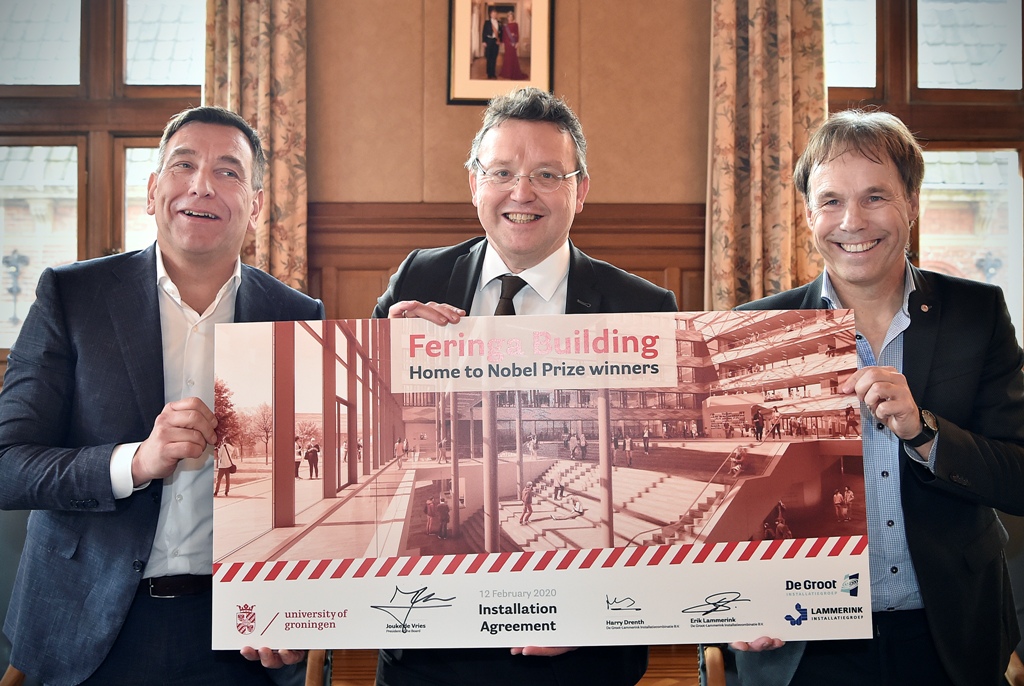
“We zijn heel blij dat we met De Groot-Lammerink nu ook een uitstekende installateur aan boord hebben voor de Feringa Building,” vertelt collegevoorzitter De Vries.
De Groot-Lammerink is een samenwerking tussen De Groot Installatiegroep (Emmen) en Lammerink Installatiegroep (Ootmarsum). Samen, met vestigingen in Groningen, Joure en Leek, gaan ze aan de slag met de installatietechnische werkzaamheden, ten behoeve van onder meer klimaat, water en elektra.
Lammerink en Drenth zijn trots op het binnenhalen van deze opdracht: “Geweldig dat we nu mee kunnen werken om dit prachtige bouwproject te realiseren. Het project sluit aan bij onze strategische ambities en groeidoelstellingen. We zullen direct aanhaken in het tempo van de bouwkundig aannemer, om efficiënt samen op te kunnen trekken.”
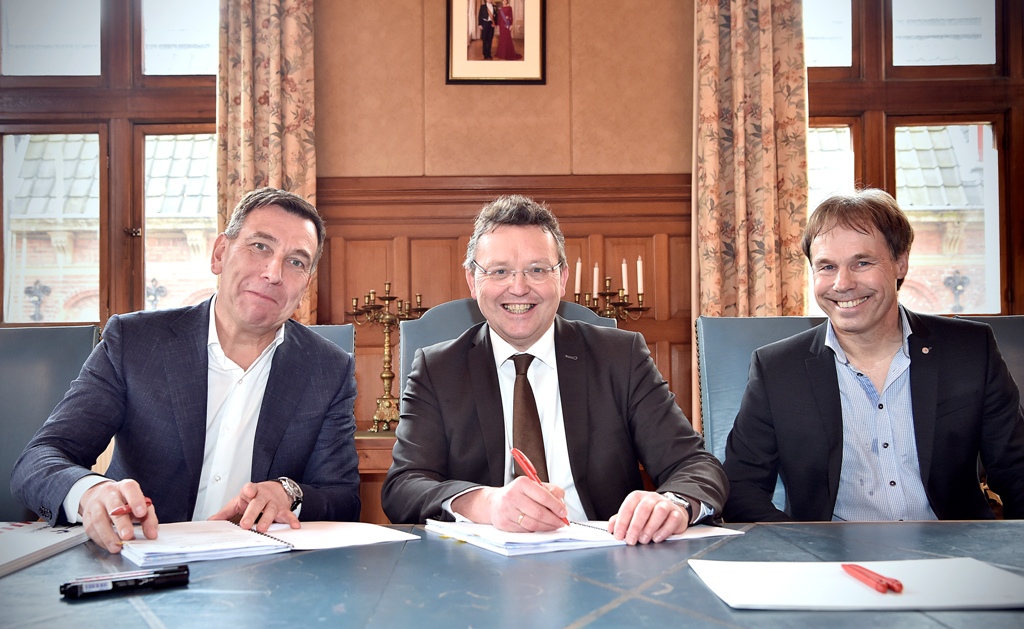
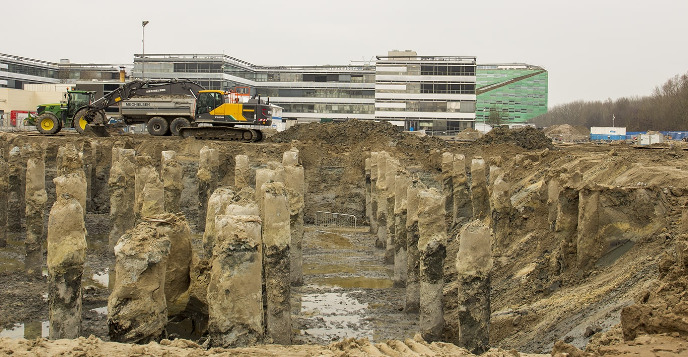
Fundering gereed
Ballast Nedam is afgelopen zomer begonnen met de funderingswerkzaamheden (bekijk hoe dit proces met weinig overlast verloopt). De ruim 2.000 palen van fase 1 zitten inmiddels allemaal in de grond. Verder verrijzen op de bouwplaats grote bouwkranen, waarmee straks de eerste staalconstructies kunnen worden opgebouwd.
Over de Feringa Building
De Feringa Building is ontworpen als drie geschakelde V-vormen. Over de hele voorzijde loopt langs de glazen gevel een aantrekkelijke brede looproute die alle vleugels met elkaar verbindt en tegelijkertijd uitzicht biedt over de campus. Het gebouw wordt maar liefst 260 meter lang, 63 meter breed en vijf verdiepingen hoog.
Naamgever en scheikundige prof. dr. Ben Feringa verricht zijn Nobelprijswinnend onderzoek in het huidige Nijenborgh 4, dat in fases plaats gaat maken voor de Feringa Building. Bouwfase 1 wordt in de zomer van 2021 opgeleverd. Fase 2 start begin 2022 en zal medio 2023 klaar zijn. Met de Feringa Building, 'home to Nobel Prize winners', onderschrijft de RUG haar ambities om ook in de toekomst een bijdrage te leveren aan belangrijke internationale onderzoeksgebieden zoals chemical engineering, nanotechnologie, material research en astronomie.
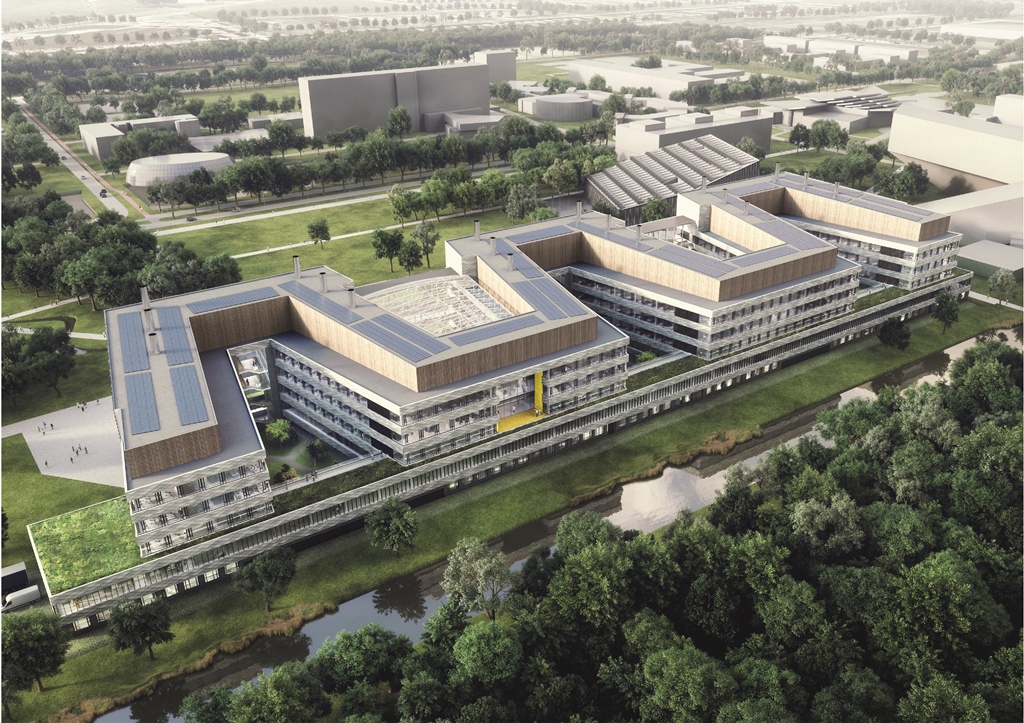
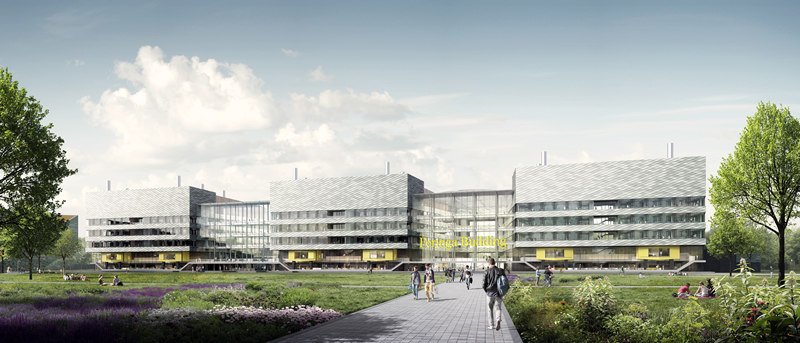
Feiten en cijfers Feringa Building
- 64.000 m2 BVO
- 260 meter lang, 63 meter breed, vijf verdiepingen
- collegezaal met 420 plekken
- restaurant met 250 plekken
- 3 kilometer aan labtafels
- 450 zuurkasten
- 30 laser labs
- 900 m2 zonnepanelen
- aardgasvrij

